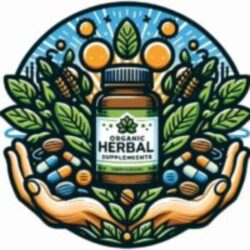Cardiovascular health is the cornerstone of a vibrant and active life.
Imagine your heart as the rhythm keeper of your body’s metropolis, ensuring everything ticks along smoothly. A healthy heart pumps blood efficiently, keeps cholesterol levels in check, and provides the body with oxygen-rich blood, crucial for every activity we do. But what happens when stress throws off and alters this delicate balance?
Stress is not just an emotional response; it’s a full-body experience. When we’re stressed, our body releases cortisol and adrenaline, hormones that prepare us for an emergency (‘fight or flight’) response. Useful in a time of danger, but creating a problem when it becomes the status quo. This constant state of anxiety can lead to high blood pressure, increased heart rate, and even artery damage, which can increase the risk for heart disease.
Chronic stress is like that annoying neighbor that just won’t go away, always hanging around and causing trouble. It’s linked to behavioral habits like smoking or unhealthy eating—things that don’t do your heart any favors. Over time, these habits can lead to serious conditions like hypertension, heart attacks, and strokes.
Recognizing the symptoms is crucial. Fatigue, headaches, irritability—all these signals might mean that stress is getting a bit too cozy with your cardiovascular system. It’s important to pay attention and take note of what your body is telling you. Noticing these signs early can help prevent bigger issues down the line. The good news is that there are plenty of ways to start counteracting these stressy symptoms.
Natural Stress Reducers as Allies to Your Heart
Here’s the scoop: turning to natural stress reducers is like having a secret weapon for heart health. These powerful little wonders come in many forms and have the potential to lighten your stress load while doing your ticker a world of good.
Let’s talk about relaxation techniques like meditation, breathing strategies, and mindfulness. These practices are about being present in the moment, which can help lower blood pressure and reduce the production of stress hormones.
Being ‘present in the moment’ means responding quickly and appropriately to the stressful situation: for example, finding a peaceful spot, closing your eyes, and focusing on your breathing (or a combination of these) can be incredibly calming. Thus, in just a few short minutes, you can mitigate the harmful effects of a stressful situation.
You can add to the power of these strategies with physical activity. Exercise releases endorphins, sometimes called ‘happiness hormones,’ that naturally combat stress. A relaxed or even a brisk walk can work wonders in chasing the stress away and defending your heart health.
Don’t forget aromatherapy and essential oils. Calming scents like lavender and chamomile can promote relaxation and provide a pleasant pause in a hectic day. Just a few drops in a diffuser, and you’re on your way to a more tranquil mindset.
The Role of Medical Supervision in Enhancing Cardiovascular Health
Please realize that you’re not in this alone. Working with healthcare pros is like having a co-pilot while you navigate your stress and heart health journey. Their expertise ensures your approach is both safe and effective.
Medical guidance is key in tailoring stress-reduction strategies to match your individual health profile. This personalization can be the difference between a generic plan and one that truly fits. Doctors get your health history and current medications, ensuring that your natural stress reducers don’t clash with any treatments you’re on. This is HUGELY important!
Medications and natural remedies each have their place, but interactions can get complicated. If you’re considering herbal supplements or dietary changes, it’s wise to loop in your healthcare team. They’ll help you dodge any unwanted surprises.
Real-life success stories shine a light on what’s possible with a combined approach. People who’ve worked with their doctors while embracing natural stress reduction often see significant improvements in their cardiovascular health. It’s about synergy; the more your care plans gel together, the better the outcomes.
Creating a Balanced Lifestyle for a Healthy Heart
A balanced lifestyle isn’t some elusive concept; it’s about making choices that support a healthier, happier you. When it comes to heart health, combining natural stress reducers with prescribed treatments can be a game-changer. Think of it like a well-rounded team working together, each player bringing their strengths to the table.
Setting realistic lifestyle goals that suit YOUR circumstances is a smart starting point for sustainable stress reduction. It’s not about flipping your life upside down overnight. Small steps, like incorporating a brief meditation session each day or choosing heart-friendly meals a few times a week, can build up to big changes over time. Take small, consistent, logical steps and keep up the good work!
Support from friends and family can also play a crucial role. Surrounding yourself with people who understand your goals helps in staying accountable and focused. Whether it’s a morning walk with a neighbor or a yoga session with a buddy, a supportive network makes a huge difference.
Very often, your good example can influence others to take similar steps to enhance their current health situation.
Looking ahead, research continues to explore new ways of stress management and heart health. Innovations and a deeper understanding are paving the way for even better strategies in the future. Staying informed and referencing our work/ blog articles at thriftyherbal.com will help keep your approach fresh and effective,.. so keep an eye out for our new articles.
